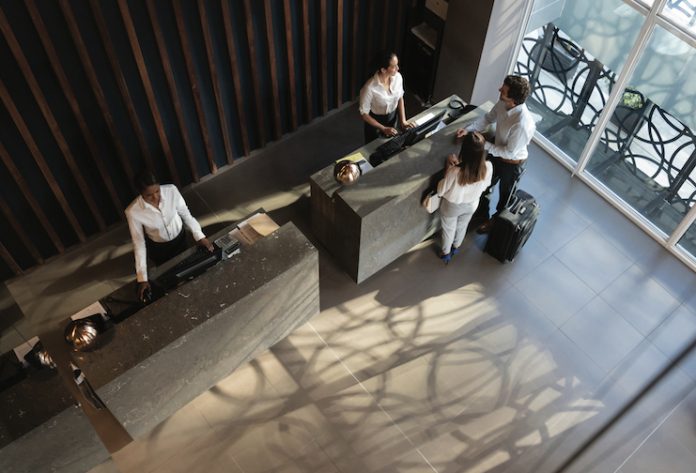The following article by Amy Travieso, vice president of government affairs at AHLA, originally appeared in the April 2019 issue of LODGING.
European consumers of online travel products scored a big win last month in an action by the United Kingdom’s Competition and Markets Authority (CMA). Addressing the issue of deceptive selling practices among online travel agents (OTAs), CMA chairman Andrew Tyrie offered the following comments in a CMA statement: “The CMA has taken enforcement action to bring an end to misleading sales tactics and other practices in the online hotel booking market. These have been wholly unacceptable. Six websites have already given firm undertakings not to engage in these practices. […] The CMA will now do whatever it can to ensure that the rest of the sector meets the same standards.”
OTAs such as Expedia, Booking.com, Agoda, Hotels.com, ebookers, and trivago are subjects of the CMA enforcement action. Following the action, all have agreed to make search results more transparent, to reduce pressure selling tactics, and to promote only hotels that are available at the time of booking.
While technology has yielded immeasurable benefits for the online consumer, it also empowers bad actors from whom online consumers need enhanced protections. Hotel bookings alone make up 15 percent of all domestic e-commerce, at a pace of 500 online bookings per minute. Unfortunately, consumer protections have not kept pace with this rapidly-evolving digital landscape. New research from AHLA suggests that online booking scams and deceptive travel websites continue to confuse and deceive a significant portion of consumers.
According to recent reporting, 28.5 million hotel stays were negatively impacted by fraudulent and misleading hotel booking transactions in 2017, at a cost of $5.2 billion.
The travel industry is plagued by third-party operated websites and call centers that mislead consumers with appearances of hotel affiliations and other travel providers. In fact, 33 percent of consumers report having been misled by third-party travel resellers on the phone or online. Such widespread deception translates into real dollars lost by consumers; according to recent reporting, 28.5 million hotel stays were negatively impacted by fraudulent and misleading hotel booking transactions in 2017, at a cost of $5.2 billion.
Consumers of online travel products would also be well-served by added protections in the form of transparency. Chronic traveler frustrations with third-party booking platforms include: extra fees charged to credit cards, failures to relay consumer information to the booked hotel, and lost hotel reservations. In a recent AHLA/Morning Consult poll, 74 percent of Americans agreed that consumers should know with whom they are doing business when booking hotels online. In addition, 72 percent of consumers want the government to make it a higher priority to enforce consumer protection laws against third-party hotel resellers.
72 percent of consumers want the government to make it a higher priority to enforce consumer protection laws against third-party hotel resellers.
For the best possible travel experience, AHLA encourages consumers to book directly through the hotel website or mobile app, or through a trusted travel agent. Together, we can make the online travel industry a more transparent and safer marketplace for everyone.











